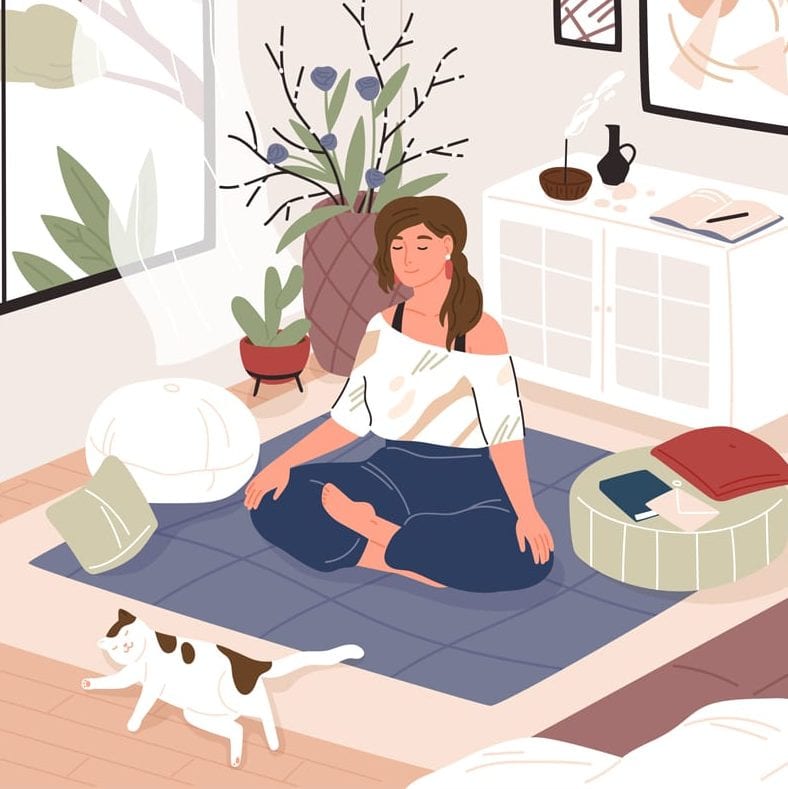Curious about meditation but do not know where to start? There is an app for that. Actually, there are numerous apps, from guided meditation to mindfulness training and techniques, that can benefit both novices and experts alike. Before you start sifting through user reviews on an endless quest to find the best one, we have got you covered with our favorite meditation apps. Tried and trusted, use these apps to help restore balance in your hectic lifestyle, relax at the end of a long day, set intentions at the beginning of the day or even nod off to sleep — bonus, many of them are free (with optional in-app purchases). Here, seven of our favorite meditation apps.
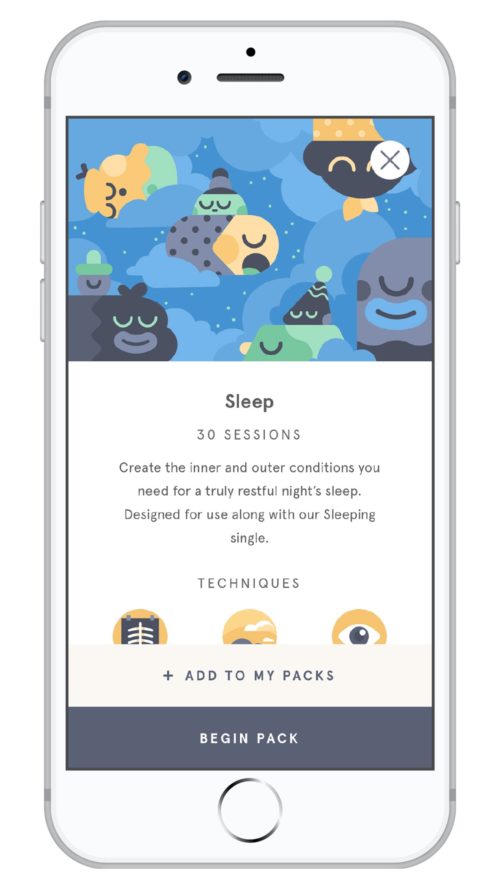
Headspace
One of the first meditation apps was Headspace, and it continues to be a favorite. If you are completely new to meditation, this app offers a free 10-day beginner’s course that “guides you through the essentials of meditation and mindfulness,” ultimately giving you “a solid foundation to build your practice on.” Choose between different narrators and let this app seamlessly walk you through the basics of meditation via helpful videos and animated graphics. I found this app incredibly helpful in explaining, and breaking down, not only the benefits of meditation but also how to try and fit it into a busy lifestyle. Similarly, the app also offers loads of animated videos (lots of them — many more than on the other apps, it seems) on different targeted topics, such as “Managing Anxiety,” “Restlessness” and “Navigating Change.” In my opinion, having these videos guided by colorful animations is much more appealing than having a human staring into the camera talking to me, especially since they are dealing with such sensitive topics. Each guided video (or sometimes, just audio) builds off of what you have just learned; for example, after walking me through a technique called “noting,” which is basically taking note of thoughts that pop up during meditation and then softly letting them go, the lesson on managing anxiety begins. In this sense, the app smartly breaks down lessons into snackable bits, which is helpful in tackling such an immense topic.
$69.99/annually
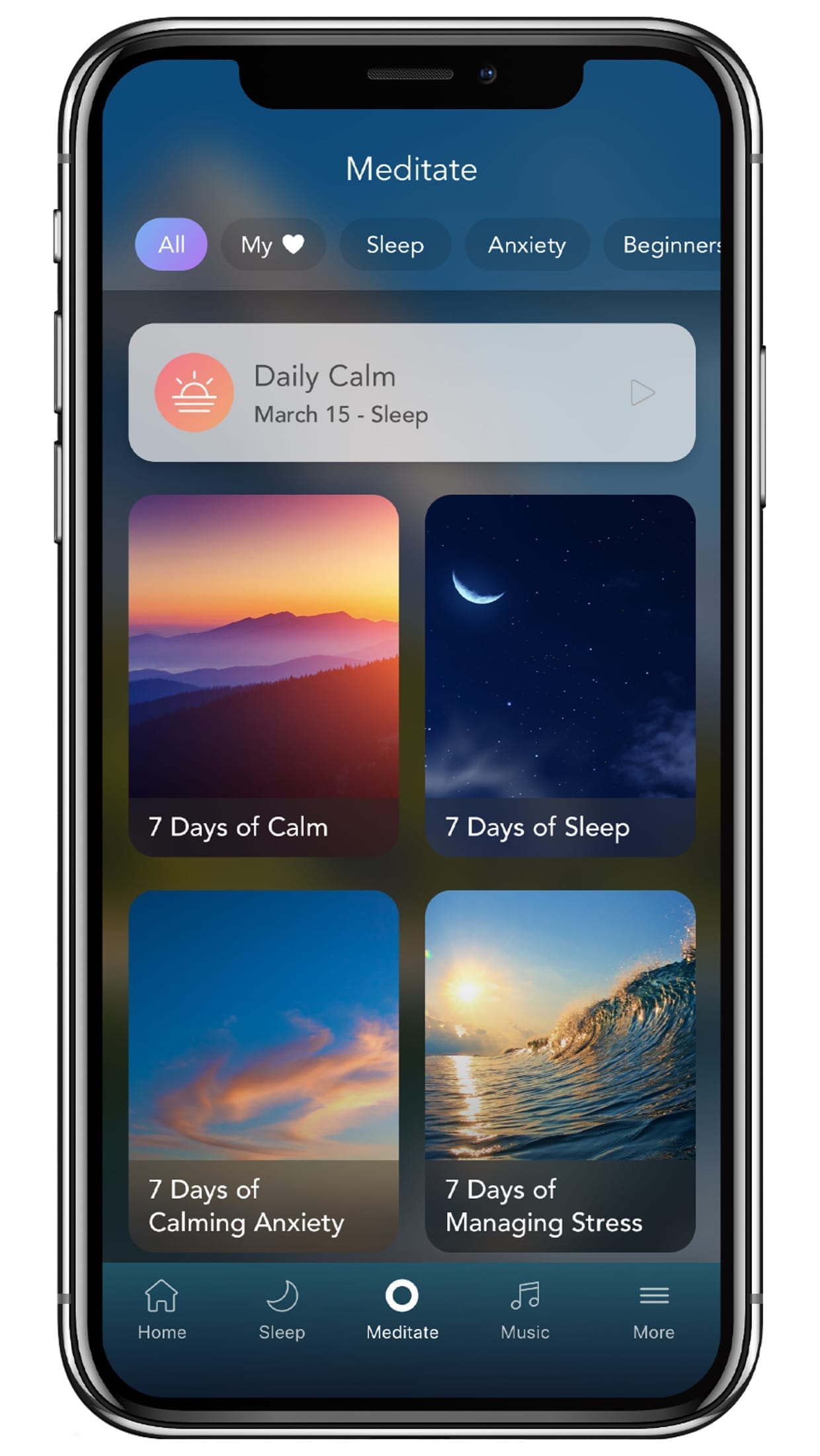
Calm
If you generally find it tough to wind down at the end of the day, Calm can help. This meditation app is specifically designed to lower stress and promote deeper, more restful sleep. Choose from a guided meditation, breathing exercises or even a calming bedtime story — some of them voiced by famous actors, like Matthew McConaughey. The app is free for the first 30 days, and after that you can opt-in to different subscription levels ($69.99 annually). Personally, when testing this one out I obviously opted first for the Matthew McConaughey bedtime story, much to my fiancé’s chagrin. I will admit that his low, southern drawl described my “body sinking into the mattress” and “under the covers,” did elicit a giggle or two — until I had completely fallen asleep before the story was even close to ending (to be fair, the story is 35 minutes long). I only wish I could remember what I dreamt about that night, but I will bet it was something along the lines of an early-aughts rom com. Five stars, all around.
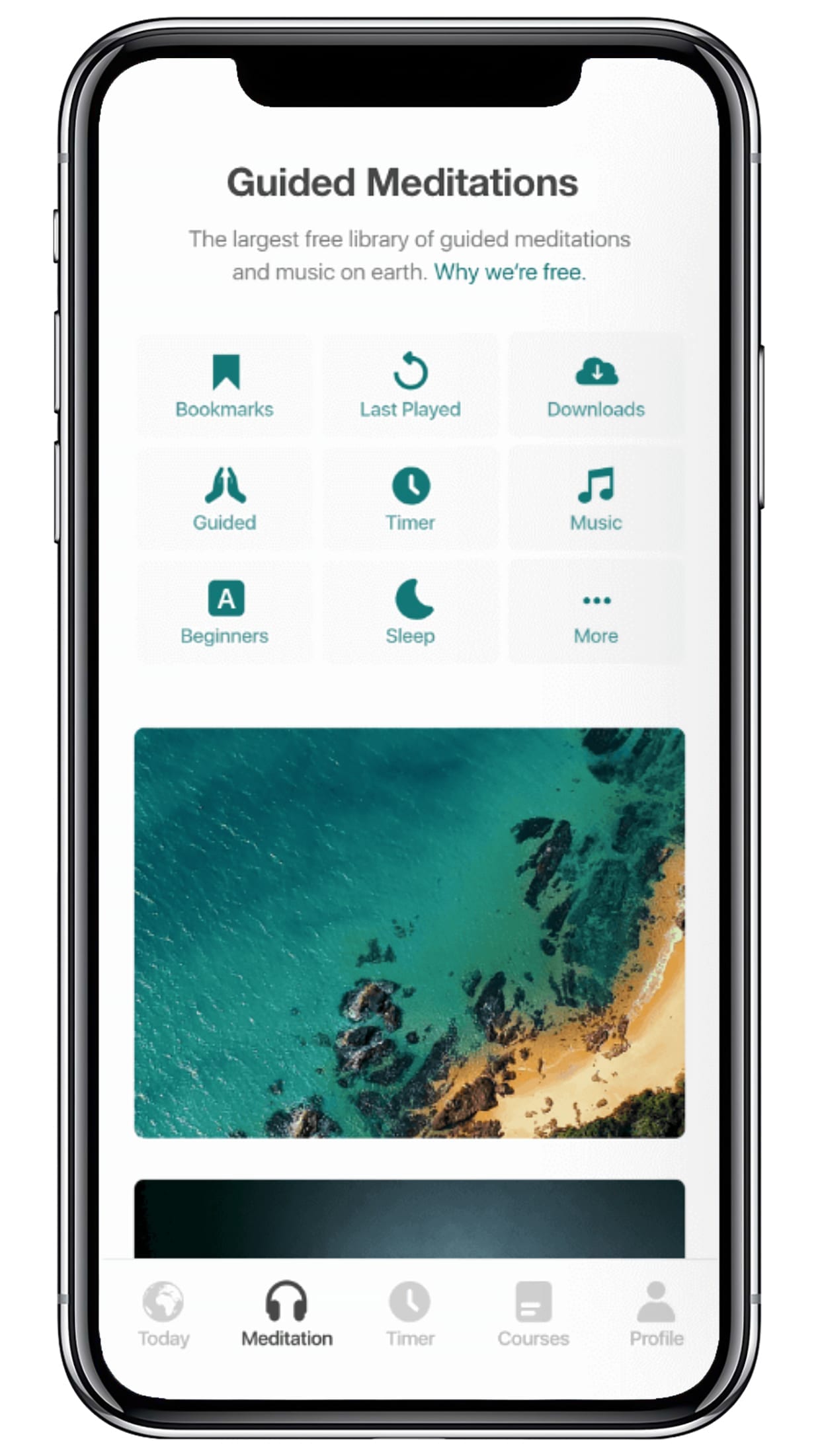
Insight Timer
As its name implies, this meditation app also tracks your progress — which is super helpful for those of us who want to commit to a steady mindfulness practice, but truly do not have free mental space to keep track of our progress. The Insight Timer app does it for you, tracking different milestones, such as consecutive meditation days and days that you meditate more than once (it keeps track by individual days, weeks and all time) in easily-understandable charts, and it is totally free (with optional in-app purchases). When you open the app, it also presents you with a variety of different focus areas, such as “Managing Stress,” “Coping with Anxiety” and “Mindfulness at Work,” which I found very helpful because, as a complete novice, it is interesting to learn about how to incorporate mindfulness into different areas of life. Each 10-day course is comprised of a series of short videos — I have only tried a few, but so far, the anxiety course has been the most helpful. For example, one of the courses under the “Coping with Anxiety” course is called “Overcome Obsessive Thinking,” and it walks through different techniques you can incorporate whenever you feel obsessive thoughts coming on (such as slowing your breathing or writing your thoughts in a journal).
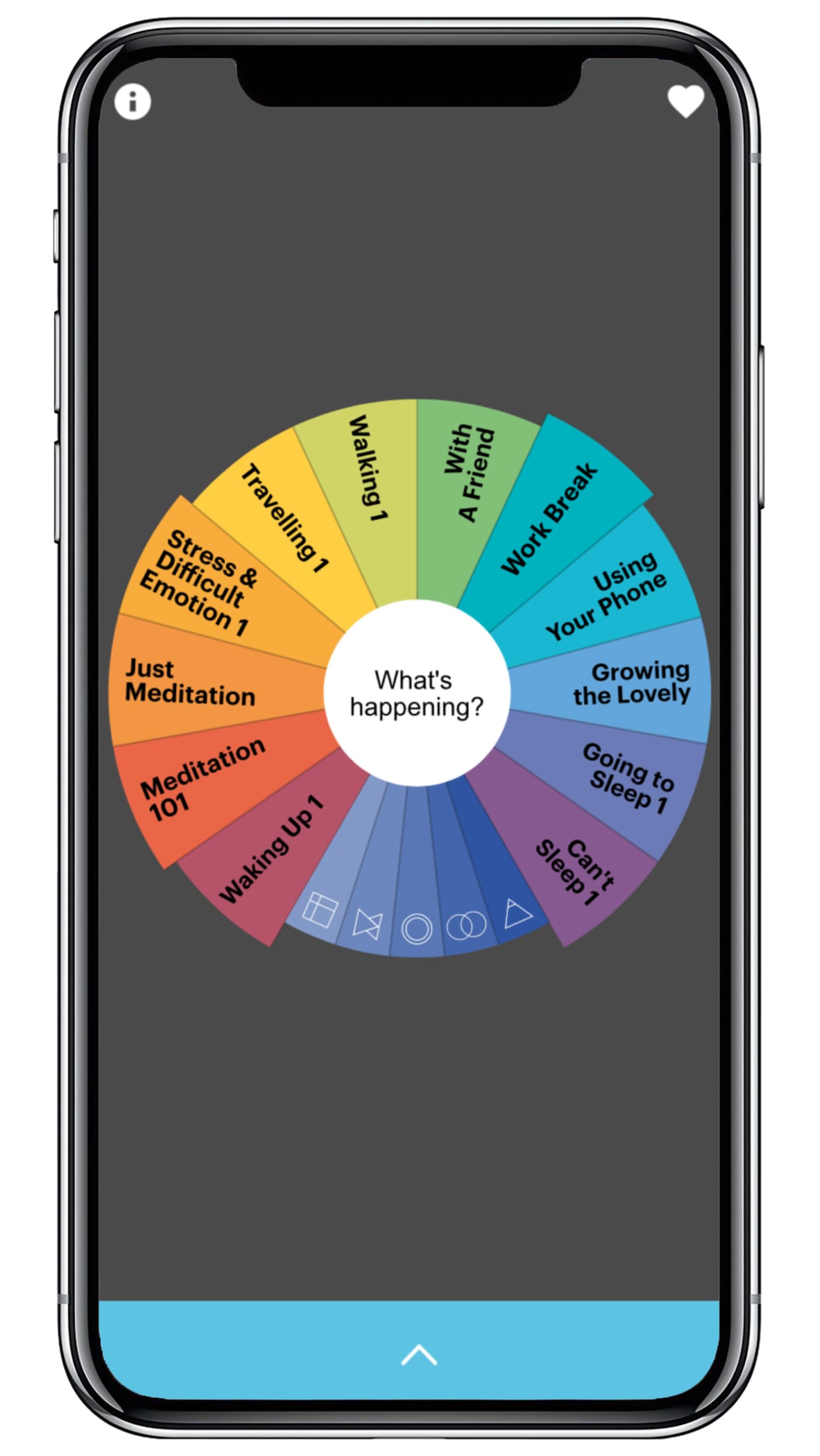
Buddhify
While this app, according to most of what I have read about it, is geared toward more experienced meditators, I found it great for a few reasons. First, Buddhify (£4.99) sorts the meditations by different activities, such as “waking up” and “work break,” so rather than blindly jump into any sort of guided meditation, you can tailor your experience toward wherever you are at in the day. Second, you can also meditate with another person — some meditations on this app are designed specifically for two people. My partner wouldn’t agree to do this, unfortunately, but I can see how it would be both useful and enjoyable to meditate alongside a loved one (and hopefully he will come around eventually).
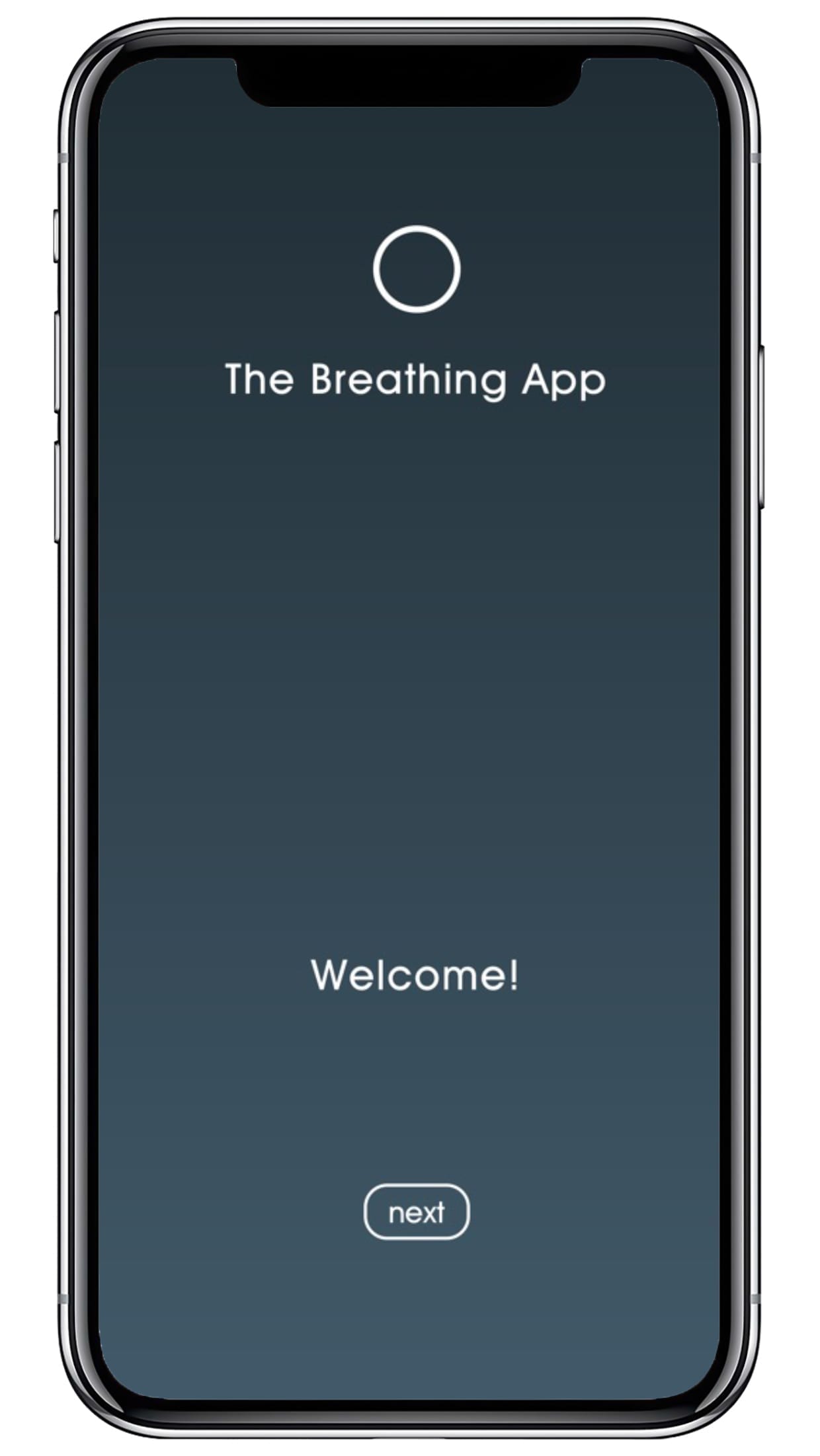
The Breathing App
Developed by Deepak Chopra, The Breathing App, as its name suggests, focuses solely on breathing. It guides you along inhaling and exhaling via a visual graphic of a ball (you inhale while it inflates, and exhale as it shrinks), and you can set your breathing timer for anywhere between one and thirty minutes, depending on how much time you want to devote. While it does not dive deeply into meditation or spirituality like some of the other apps, you still reap the benefits: lower stress levels and heart rate, a more calm and relaxed state, and improved feelings of anxiety and depression. I found this app helpful mid-day, whenever I needed a reset of sorts, because it is so easy (and quick, if needed) to do and yet it works almost instantaneously to calm me down.
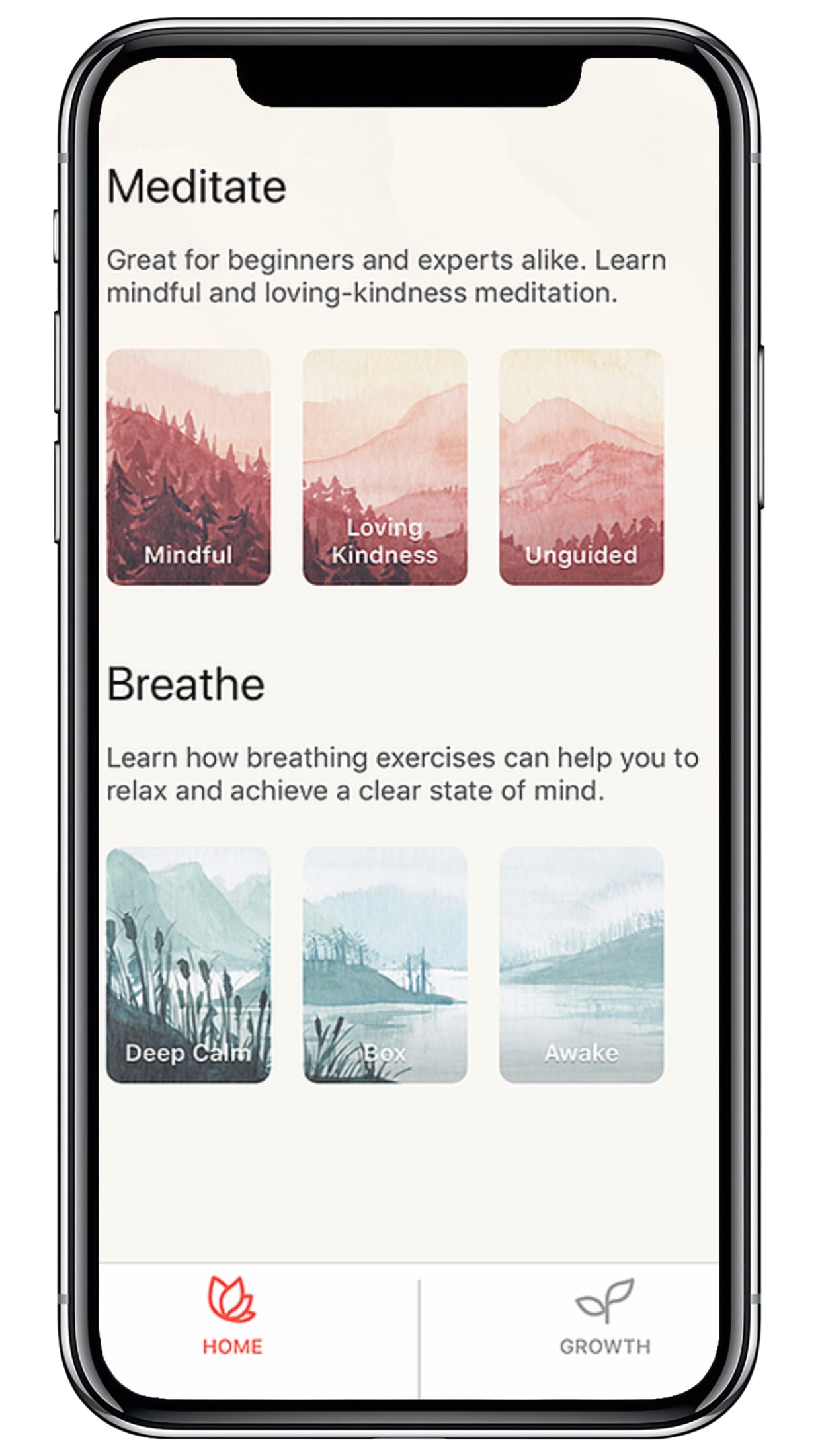
Oak
I like this app because it tracks your progress and usage by awarding badges (the first level, which I have yet to make it past, is called “Grasshopper”), and each badge unlocks more features on the app — all of which are free. Oak also tracks your all-time minutes meditated and breaths taken. The app also has an option to schedule daily inspirational sayings at a specific time — you can schedule it for whenever you typically need a pick-me-up, say, that 3 p.m. slump. Similar to some of the other apps, the guided breathing section uses an image of an inflating and deflating sphere to indicate when you should inhale, hold your breath and exhale (you can opt for voice guidance or not). For the guided meditations, you can choose from a variety of background noises to accompany each session, including generally calming sounds such as a fireplace, soft rain, waterfall or white noise (soft rain is probably my personal favorite). Side note: I also found the watercolor backgrounds and illustrations in this app aesthetically pleasing, calming and pretty chic.
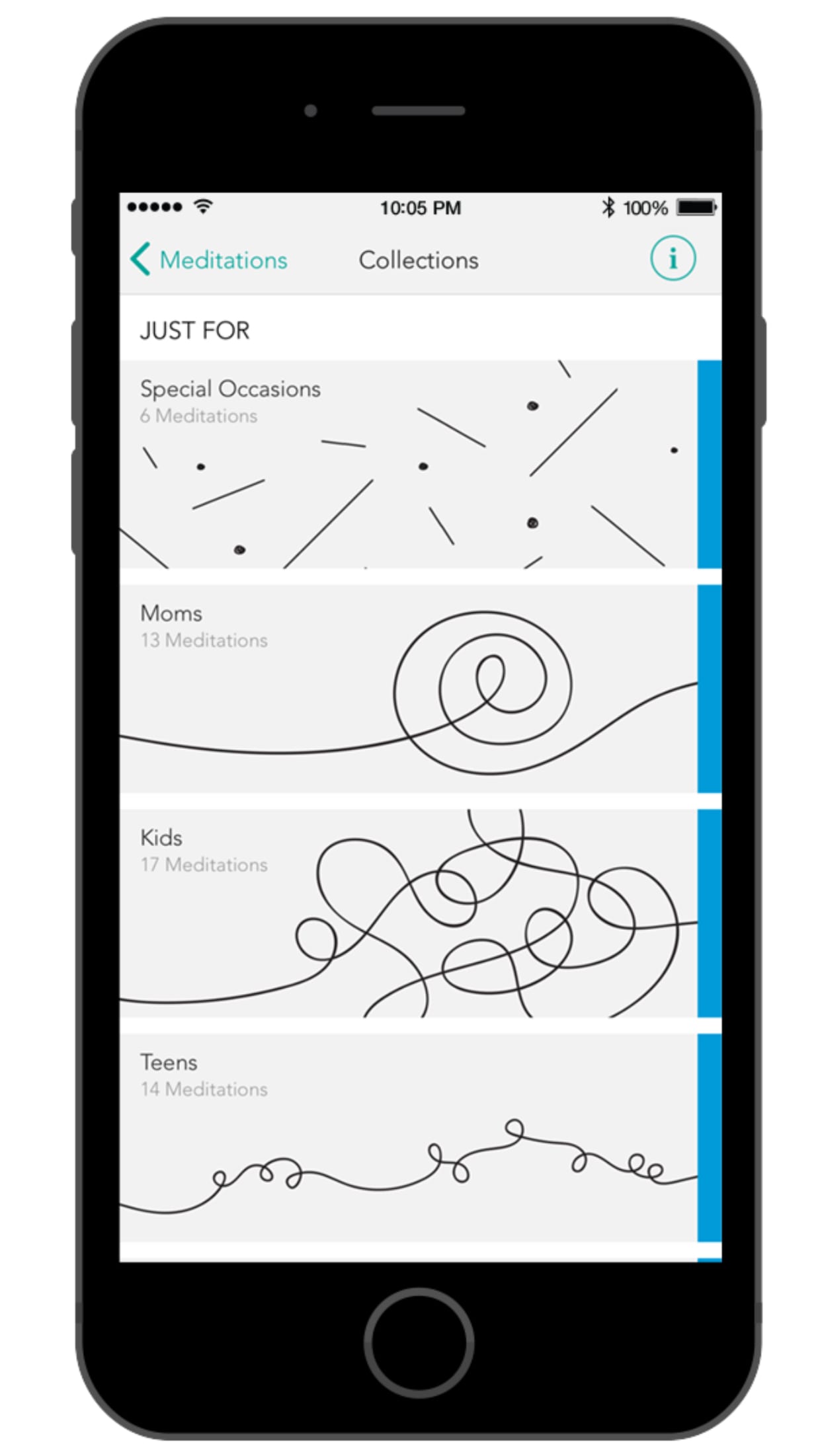
Meditation Studio
For beginners, Meditation Studio offers a free introductory 10-day course. After that, you can dive into targeted meditation practices (like breath, body or inspiration meditation) as well as even more niche sections such as ‘Cultivating Wisdom and Compassion’ and ‘Values Clarification’ for $49.99 per year. What I personally found to be the coolest aspect of this app, however, was the ‘Changing Habits’ series. Made of up 12 different sessions, this series breaks down exactly how habits are formed — and what it takes (little by little) to intentionally change our habits. It does not focus on a specific habit, but rather, guides you through the general steps, including identification, changing attitude, focusing attention, easing cravings and setting an intention. I found these strategies to be incredibly useful because, when you think about, we are our habits, and you can apply these techniques and tips to any habit you’re trying to break. I am not sure that I would pay to continue my membership, but this app is worth checking out for both beginners and gurus alike.




